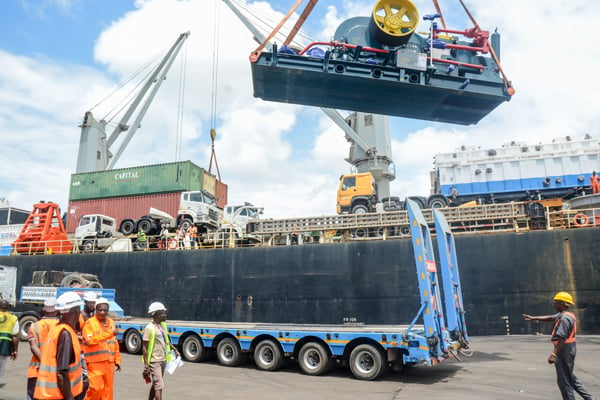Energy minister slams EU criticism of oil project

Students under their umbrella body the Uganda National Students’ Association (UNSA), march to European Union offices to protest the resolution to delay the construction of the oil pipeline on September 29, 2022. PHOTO | ABUBAKER LUBOWA
What you need to know:
- France's TotalEnergies and the China National Offshore Oil Corporation signed a $10-billion agreement earlier this year to develop Ugandan oilfields and ship the crude through a 1,445-kilometre (900-mile) pipeline to Tanzania's Indian Ocean port of Tanga.
Uganda's energy minister on Tuesday slammed the European Parliament for seeking to delay a massive and controversial East African oil project over human rights violations and environmental concerns.
France's TotalEnergies and the China National Offshore Oil Corporation signed a $10-billion agreement earlier this year to develop Ugandan oilfields and ship the crude through a 1,445-kilometre (900-mile) pipeline to Tanzania's Indian Ocean port of Tanga.
The project, which includes drilling in Murchison Falls, Uganda's largest national park, has run into strong opposition from activists and environmental groups that say it threatens the region's fragile ecosystem and the livelihoods of tens of thousands of people.
The European Parliament resolution adopted last month voiced concern over "human rights violations" in Uganda and Tanzania linked to investments in fossil fuel projects.
These included "wrongful imprisonment of human rights defenders, the arbitrary suspension of NGOs, arbitrary prison sentences and the eviction of hundreds of people from their land without fair and adequate compensation".
It also urged TotalEnergies to take a year before launching the project to study the feasibility of an alternative route "to better safeguard protected and sensitive ecosystems and the water resources of Uganda and Tanzania".
On Tuesday, Uganda's Energy Minister Ruth Nankabirwa said the EU resolution took Kampala "by surprise".
"The EU parliament, at this time, to think about stepping in the way of developing the crude oil pipeline was uncalled for," she told AFP on the sidelines of the Green Energy Africa Summit in Cape Town.
"Africa has been green but people are cutting down trees because they are poor," she said.
"We are all partners in the fight against climate change. If we don't consider ourselves as partners, we are not going to win this war."
Africa's carbon footprint is the lowest of any continent, accounting for around three percent of global CO2 emissions.
Uganda's President Yoweri Museveni has vowed to proceed with the project regardless of the EU resolution, warning that the government would look for other partners in case TotalEnergies chose to "listen to the EU Parliament".
The project aims to extract the huge crude reserves under Lake Albert, a 160-kilometre-long natural border between Uganda and the Democratic Republic of Congo, and ship the oil through what would become the world's longest heated pipeline.
Museveni has in the past hailed the project as a major economic boost for the landlocked country, where many live in poverty.





